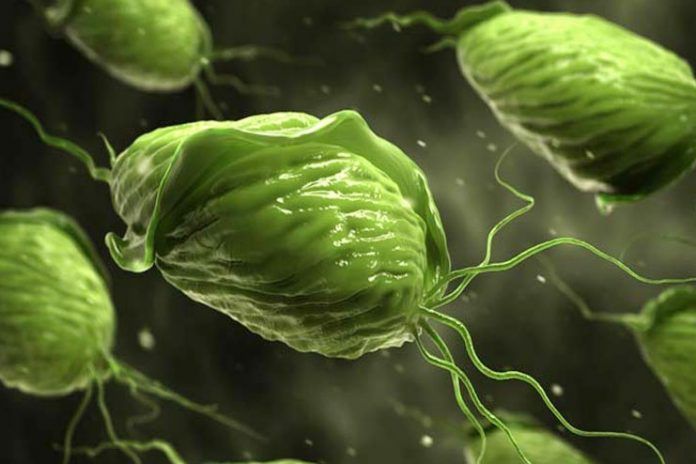Affiliate Disclaimer
Some links in this article are affiliate links. We may earn a small commission if you make a purchase through these links, at no extra cost to you. We only recommend products we find useful to our readersTrichomonas infection or trichomoniasis is one of the common sexually transmitted infection which is most commonly caused by a protozoan organism, known as Trichomonas vaginalis. In its shortest forms, it is commonly known as Trich infection. Although a sexually transmitted disease, trich infection can be treated easily by following effective treatment methods. It is important to carry out laboratory tests along with the physical exercise to diagnose the problem properly.
Here we have tried to provide you detailed information about the problem of Trichomonas along with its causes as well as symptoms. Read on to know more about the effective treatment methods, which you can use to treat the problem of Trichomonas.
What is Trichomonas?
As mentioned earlier, the problem of Trichomonas is the sexually transmitted infection, which is highly common. According to the statistics, around 3.7 million Americans are diagnosed with the problem of trichomoniasis at any given point of time. However, this infection can be treated easily by following effective treatment methods.
What are the symptoms of Trich?
According to the experts, trich does not have any symptoms often. It has been said that around 30 percent of the sufferers do not report any symptoms at all. The same has been found in around 85 percent of women sufferers.
However, the symptoms of trich start to appear after 28 days a person is getting infected with the disease. In some cases, this period may also increase. The symptoms for both men and women can differ.
Symptoms of Trich for women are,
- Vaginal bleeding or spotting
- Genital swelling or redness
- Genital itching or burning
- Urge to urinate frequently
- Pain during sexual intercourse or urination
- Frothy vaginal discharge, which can be gray, white, yellow or green in color with an unpleasant odor.
Symptoms of trich for women are,
- Frequent urge for urination
- Discharge from urethra
- Burning sensation after ejaculation or urination
Trichomonas treatment
● Diagnosis
The diagnosis of trichomonas, like various other sexually transmitted infection can be done with the help of symptoms It is important to consult with your doctor immediately for the physical examination or laboratory tests. Your doctor may suggest some of the following tests
- Test to recognize Trichomonas DNA
- Cell cultures
- Examination of samples of vaginal fluid in women and urethral discharge in men under a microscope.
- Antigen test, in which the Trichomonas parasite is searched, which causes color change and indicates infection.
● Treatment
The most common way to treat the problem of Trichomonas is to provide antibiotics. Some of the effective antibiotics include metronidazole or tinidazole. However, it is important not to drink alcohol for 24 hours after the consumption of metronidazole and minimum of 72 hours after the consumption of tinidazole. It should be avoided as it can cause severe vomiting as well as nausea.
Another important thing to do is to ensure that all the tests of your sexual partner are done properly. As mentioned earlier, this infection does not show symptoms at every time. You will also need to avoid all the sexual contact with your partner till the infection is fully treated. Usually, it will take around a week of time.
Possible complications of trichomoniasis
If you are suffering from the problem of trich, you become more vulnerable to other sexually transmitted infections. Along with other sexually transmitted infections, problems such as genital inflammation can cause the problem of HIV.
Along with trich, you may also suffer from other conditions such as gonorrhea, chlamydia as well as bacterial vaginosis.
If left untreated, trich may cause pelvic inflammatory disease. Various complications of PID include,
- Infertility
- Chronic pain in abdomen and pelvis
- Blockage of the fallopian tube due to scar tissue
Relation of Trichomoniasis and pregnancy
Pregnant women can cause various complications due to the problem of trichomonas. Some of the major risks are delivering a premature baby or delivering a baby with lower birth weight. In rare cases, the infection can be transmitted to the baby during pregnancy.
The problem of trichomoniasis during the pregnancy increases the chances of development of intellectual disability in the child. As there are no side effects of medicines such as metronidazole and tinidazole, it can be suggested for consumption. However, it is better to take a suggestion from your doctor first.
Expert medical help is always suggested to prevent the complications in your child.
Risk factors of trichomoniasis
It has been proven that the infection of trichomoniasis is more common in women than men. People within an age range of 14 to 49 can fall prey to the disease. It has also been found that the disease is more common in elder women than men. Especially, the 40-year-old women are at more risk of the infection.
Some of the major risk factors include,
- History of sexually transmitted infections
- Unprotected sex
- Multiple sexual partners
- Previous history of trichomoniasis
How is trichomoniasis prevented?
The only and most effective way to prevent the problem of trichomoniasis is to prevent unprotected sexual activity. Other important ways to prevent the sexually transmitted infection include the use of latex condoms during the sexual intercourse.
Protected sex is always an important way to prevent any sexually transmitted infection.
Final thoughts
It is not at all recommended to left the infection of trichomonas untreated. This infection can get cured easily within a week. However, the problem may also erupt again if the sexual intercourse appears with the infected partner. It is, therefore, important to treat the infection by ensuring the testing of the sexual partner. You should also wait for a few days so that the infection gets cleared. During this period, avoid having sexual intercourse.
Talk to your doctor immediately if the symptoms of trichomoniasis don’t go away within a week and the symptoms have started to appear again.
It is important to note that the reinfection can also happen in both men and women, although it is more common in women. Reinfection may also take place even if your partner is treated. In rare cases, the problem of trichomoniasis has been found resistance to certain medications.



















